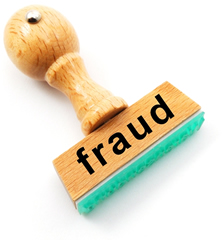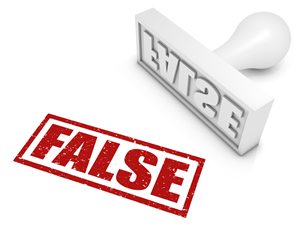Car Insurance Fraud (and Why it Doesn't Pay)

Lawmakers and citizens alike have levied harsh criticisms against the mandatory nature of auto insurance, using colorful accusations such as "legal corn-holing" or "socialized risk program" to describe a state's right to impose upon its citizen-drivers a minimum level of insurance coverage. While we won't take a position as to the legality or moral hazard some associate with or question of such requirements, one thing is for certain: drivers often see or experience the safety net that is car insurance as an opportunity to get something extra in the event that an accident occurs.
More ambitious fraudsters see the mandatory nature of car insurance not as an opportunity to "recoup" some of their investment, but instead to use the device as a mechanism for extracting financial wealth out of a system in which the majority of driving Americans participate. Cause an accident, get paid. This mantra is surprisingly common, especially in states with disproportionately high luxury vehicles that are more likely to carry premium car insurance policies.
Whether a person attempts to exaggerate their own personal losses in order to get a little something extra or another person chooses to orchestrate a major incident in order to benefit from a patsy's policy, the common thread for both is a concept known as car insurance fraud. Like any other crime (and oh yes, both are very much a form of criminal activity) fraudulent insurance claims are most commonly classified in two degrees; we'll discuss both here, their respective consequences and, hopefully, illustrate that auto insurance fraud, regardless its form, does not pay.

Soft Insurance Fraud
Insurance fraud falls into two main categories. The first, and by far the most common, is called soft fraud, which is the name for what happens when people file inappropriate claims for a real accident. Filing a claim for any damage not related to the accident at hand is illegal. Exaggerating damages or injuries after an accident, filing multiple claims for the same injury, misreporting wage losses from an injury, or reporting an inflated bill for car repairs after an accident are all examples of soft fraud.
Another common kind of soft fraud is when people falsify information on their insurance in an effort to lower their premiums. So if you live in New York City, it might seem like a good idea to register your car in upstate New York, where it's less expensive to insure a car. Or, if you have teenage kids, you may want to register their car under your name instead of theirs. Be careful - these might seem like thrifty shortcuts. But they're actually a form of insurance fraud.
Hard Insurance Fraud
The second category of insurance fraud is called hard fraud. Hard fraud includes planning a car crash or faking a car theft in order to collect insurance money. Sometimes scammers or organized criminals will "trap" unsuspecting drivers into an accident by slamming on the brakes in traffic and causing a rear-end collision, or by appearing to cede right of way to a victim and then hitting the gas. These kinds of insurance fraud are less common than soft fraud, but they're subject to harsh punishment.

Fraud Doesn't Pay
All of the types of insurance fraud listed above are illegal, and can have negative consequences from fines to jail sentences. Most forms of fraud are subject to misdemeanor charges, which can lead to fines of up to $15,000, probation, or jail sentences of up to five years. Conviction for felony insurance fraud, which involves the destruction of property, involves jail sentences of 5-10 years and fines of up to $150,000.
Additional consequences of car insurance fraud also include:
- Criminal charges: If you are caught committing insurance fraud you can end up with a criminal record, which can have a negative impact on future job opportunities, your voting rights, and more.
- Jail time: Those convicted of committing insurance fraud could end up facing several years of jail time.
- Fines: Fines for insurance fraud can be as high as tens or even hundreds of thousands of dollars, in addition to any restitution you could have to pay.
- Raised premiums: Insurance fraud results in raised premiums for everyone, since insurers need to make up the money they lose from fraudulent claims. In addition, having large claims on your record can make your individual insurance rates go up, costing you more money in the long-term.





